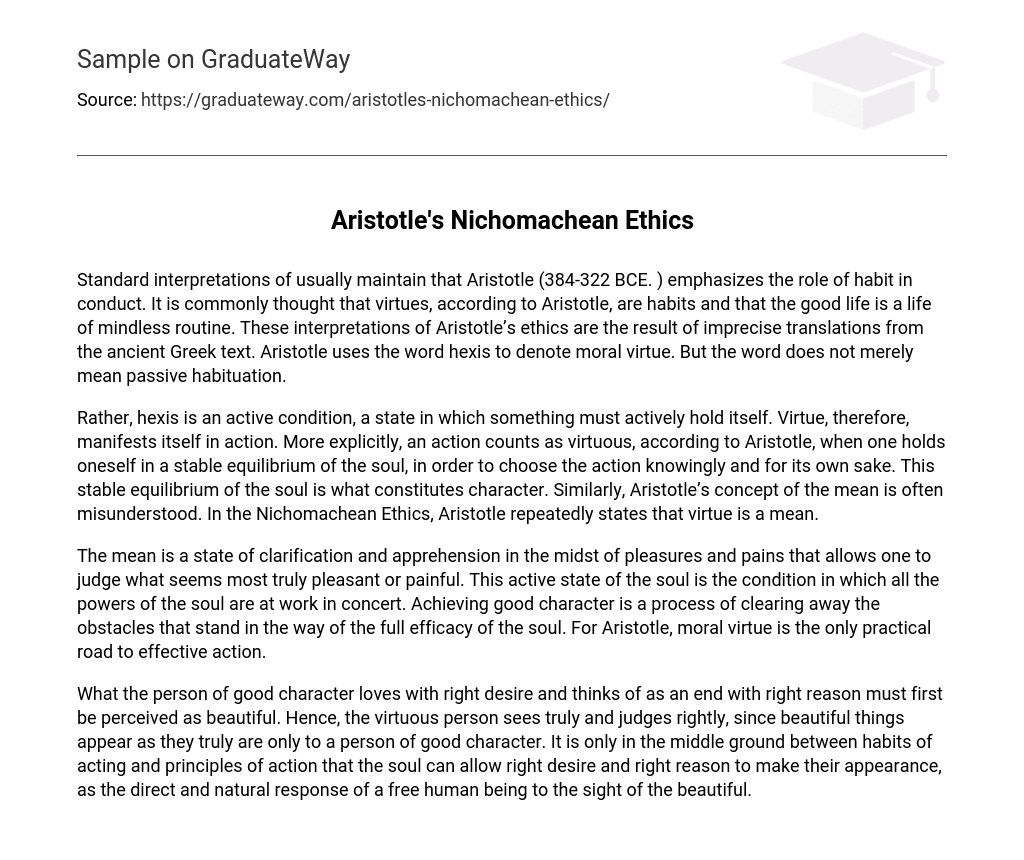According to common accounts, Aristotle (384-322 BCE.) places significant importance on habit in human behavior. It is generally understood that virtues, as Aristotle suggests, are formed through habitual actions and that a fulfilling life consists of thoughtless repetition. However, these interpretations of Aristotle’s ethical philosophy stem from imperfect translations of the original Greek text. Aristotle uses the term “hexis” to describe moral virtue. Yet, this term does not solely refer to passive conditioning.
Rather, hexis is an active condition, a state in which something must actively hold itself. Virtue, thus, demonstrates itself through action. More specifically, according to Aristotle, an action is considered virtuous when one intentionally maintains a stable balance within their soul and chooses the action for its own sake. This stable balance within the soul is what defines character. Similarly, Aristotle’s understanding of the mean is frequently misconstrued. In the Nichomachean Ethics, Aristotle repeatedly asserts that virtue is a middle ground.
The mean is a state of clarification and apprehension in the midst of pleasures and pains that permits one to assess what appears genuinely pleasant or painful. This dynamic state of the soul involves the harmonious collaboration of all its faculties. Developing good character involves removing the barriers that hinder the soul’s complete effectiveness. According to Aristotle, moral virtue is the sole practical path to successful action.
The perception of beauty is essential for a person with good character to love and prioritize with proper reasoning. Therefore, someone virtuous can accurately perceive and make informed judgments, as beautiful things are only truly apparent to individuals of good character. It is within the realm of balance between habitual actions and guiding principles that the soul enables righteous desire and reasoning to emerge naturally, reflecting the genuine response of a free individual upon encountering beauty.





